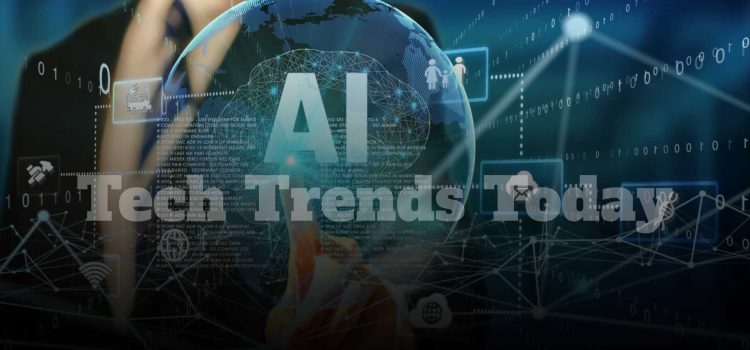
AI Tools
Artificial Intelligence (AI) has emerged as a game-changer in various industries, revolutionizing the way we work. With advancements in machine learning, natural language processing, and data analytics, AI tools are transforming traditional workflows and empowering businesses and individuals to achieve unprecedented levels of efficiency and productivity.
Understanding AI Tools
AI tools are software applications that leverage AI algorithms to automate tasks, analyze data, and provide insights for decision-making. These tools are designed to replicate human intelligence and enhance human capabilities by processing and interpreting vast amounts of data at lightning speed. From simple automation tasks like scheduling appointments and managing emails to complex data analysis and predictive modeling, Artificial Intelligence tools are reshaping industries across the board.
Applications of AI Tools
AI tools have found widespread applications in various industries, ranging from healthcare and finance to marketing and customer service. Here are some examples:
Healthcare: AI are being used for diagnosing diseases, predicting patient outcomes, and assisting in surgery. For instance, AI-powered radiology tools can analyze medical images to detect anomalies and aid in the early diagnosis of conditions such as cancer and heart disease, leading to improved patient care and outcomes.
Finance: AI are transforming the finance industry by automating tasks such as fraud detection, portfolio management, and customer service. These tools can analyze vast amounts of financial data in real-time, identify patterns, and make predictions to optimize investment decisions and minimize risks.
Marketing: AI are helping businesses optimize their marketing strategies by analyzing customer data, identifying trends, and personalizing marketing campaigns. For example, AI-powered chatbots can engage with customers in real-time, provide personalized recommendations, and resolve queries, leading to enhanced customer experience and loyalty.
Customer Service: Artificial Intelligence tools are revolutionizing customer service by automating repetitive tasks, such as answering frequently asked questions and processing customer inquiries. These tools can analyze customer data and provide personalized solutions, leading to faster response times and improved customer satisfaction.
Benefits of AI Tools
The widespread adoption of AI tools driven by several key benefits:
- Increased Efficiency: AI tools can automate repetitive and time-consuming tasks, freeing up human resources to focus on higher-value activities. This leads to increased productivity, reduced errors, and faster decision-making.
- Enhanced Accuracy: AI can analyze vast amounts of data with high accuracy, leading to more informed decision-making. For example, AI-powered data analytics tools can process complex data sets and identify patterns and trends that may not be apparent to human analysts, leading to better insights and strategic planning.
- Improved Personalization: AI can analyze customer data to provide personalized recommendations and solutions, leading to enhanced customer experience and loyalty. For example, AI-powered recommendation engines can analyze browsing behavior, purchase history, and demographic data to provide personalized product recommendations, increasing the likelihood of conversion.
- Predictive Analytics: AI can leverage machine learning algorithms to analyze historical data and make predictions about future events. This can be particularly valuable in industries such as finance, where AI can predict market trends, optimize investment decisions, and minimize risks.
- Cost Savings: AI tools can automate tasks that would otherwise require human intervention, leading to cost savings. For example, AI-powered chatbots can handle customer inquiries, reducing the need for human customer service agents and lowering operational costs.
Challenges and Limitations of Artificial Intelligence Tools
Despite their numerous benefits, AI also face certain challenges and limitations:
- Ethical Concerns: AI raise ethical concerns related to data privacy, bias, and transparency. For example, AI algorithms can inadvertently perpetuate biases present in training data, leading to biased outcomes and
- Ensuring ethical and responsible use of AI is critical to avoid potential negative impacts on society.
- Lack of Human Touch: While AI tools can automate tasks efficiently, they may lack the human touch and emotional intelligence required for certain tasks. For example, customer service interactions may require empathy and emotional understanding, which AI tools may not possess fully.
- Technical Limitations: AI are dependent on data quality and availability. Poor data quality or limited data availability can affect the performance and accuracy of AI tools. Additionally, Artificial Intelligence tools may struggle with complex and dynamic situations that require human intuition and judgment.
- Adoption and Integration Challenges: Integrating AI into existing workflows and processes may pose challenges, such as training employees to use new tools, ensuring compatibility with existing systems, and managing change. Organizations need to carefully plan and execute the adoption and integration of AI to maximize their benefits.
The Future of AI Tools
- The potential of AI tools is vast, and the future looks promising. Advancements in AI technology, coupled with increasing amounts of data and improved computing power, are likely to drive further innovations in AI . Here are some potential future developments:
- Enhanced Personalization: AI are expected to become more sophisticated in analyzing customer data and providing highly personalized recommendations and solutions. This can lead to hyper-personalized customer experiences, driving customer loyalty and satisfaction.
- Augmented Intelligence: AI are likely to evolve into augmented intelligence, where AI complements human intelligence rather than replacing it. Human-AI collaboration can lead to better decision-making, creativity, and problem-solving across various domains.
- Ethical AI: As the ethical concerns surrounding AI continue to gain attention, future AI tools are expected to focus on addressing bias, ensuring transparency, and adhering to ethical guidelines. This can lead to more responsible and trustworthy AI that benefit society as a whole.
- Industry-Specific AI Tools: AI likely to be further customized and specialized for specific industries, addressing the unique needs and challenges of each industry. For example, AI in healthcare may focus on personalized treatment plans, while AI tools in manufacturing may optimize production processes.
- Continued Automation: AI are expected to continue automating tasks across industries, freeing up human resources and increasing efficiency. This can lead to cost savings, improved productivity, and faster decision-making.
Conclusion
AI tools are transforming the way we work, bringing unprecedented levels of efficiency, accuracy, and personalization to various industries. While they face challenges and limitations, the potential of AI is immense, and the future looks promising. Embracing responsible and ethical use of AI can lead to substantial benefits for businesses and society as a whole. As we move forward, the integration of AI into our workflows and processes is likely to become even more prevalent, shaping the future of work and unlocking new opportunities for innovation and growth. The future is here, and AI tools are at the forefront of this technological revolution.










